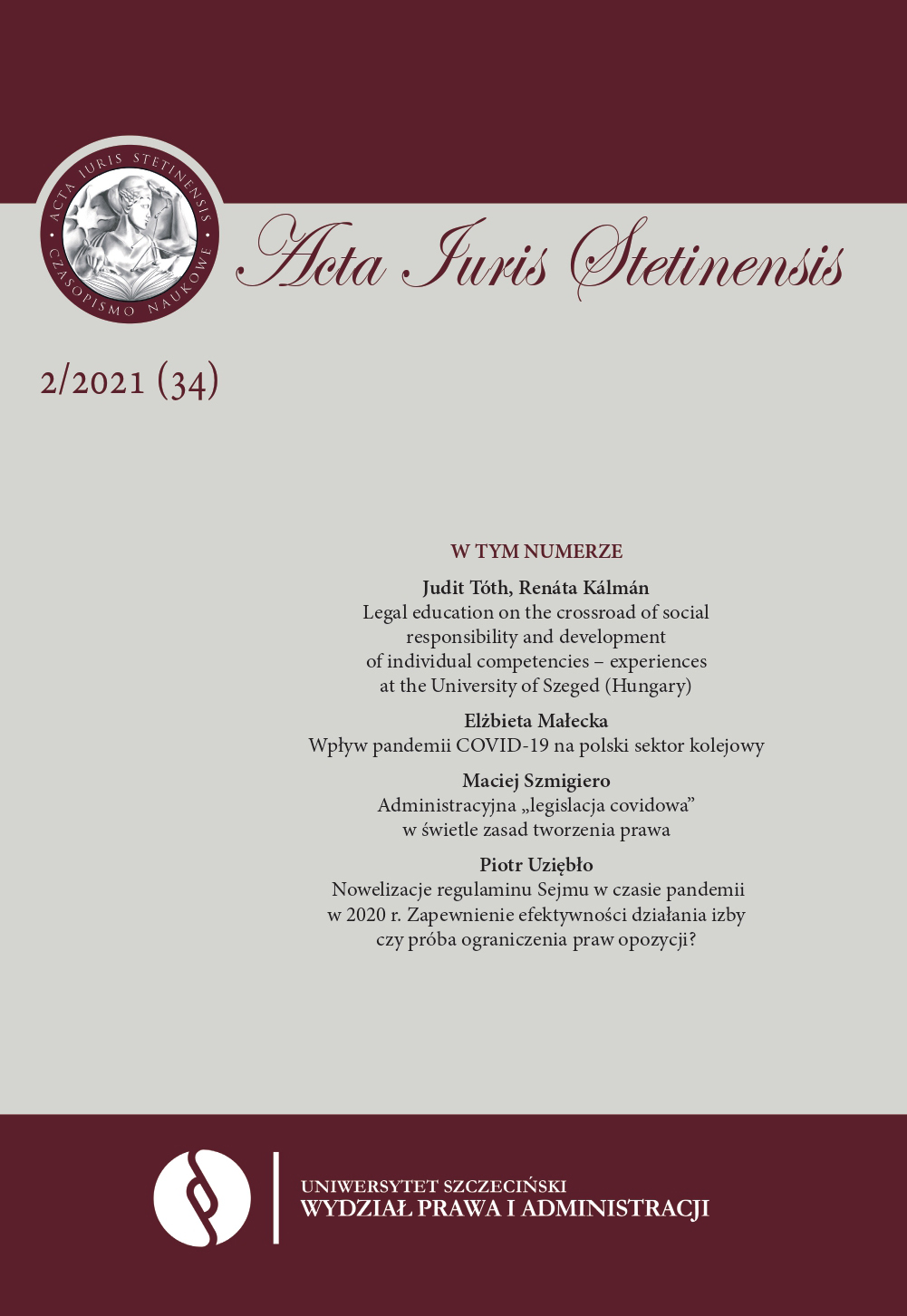Administracyjna „legislacja covidowa” w świetle zasad tworzenia prawa
Administrative “COVID legislation” in the light of the principles of law-making
Author(s): Maciej SzmigieroSubject(s): Politics / Political Sciences, Law, Constitution, Jurisprudence, Constitutional Law, Governance, Public Administration, Public Law, Administrative Law, Labour and Social Security Law
Published by: Wydawnictwo Naukowe Uniwersytetu Szczecińskiego
Keywords: administrative legislation; law-making rules; law-making dysfunctions; Covid legislation
Summary/Abstract: This paper evaluates Polish administrative legislation aimed at counteracting infections and a more effective fight against COVID-19, the infectious disease caused by SARS-CoV-2. This legislation is also a response to the inevitable negative social and economic effects. It takes the form of draft laws prepared by the Council of Ministers or normative acts issued by the government administration. These acts are referred to as “Covid legislation”. The broad understanding of administrative legislation presented in the article covers the procedures for drafting laws submitted to the Sejm by the Council of Ministers, regulated by the provisions of the Act of 8 August 1996 on the Council of Ministers and by Resolution No. 190 of the Council of Ministers of 29 October 2013 – Rules of Procedure of the Council of Ministers. In this context, the author analyses the procedure for the preparation of the draft law of 2 March 2020 on special solutions related to the prevention of, counteracting and combating COVID-19, other infectious diseases and the crises caused by them. The “Covid legislation” created by the government administration – both in the form of regulations and draft laws – focused many dysfunctions, which include the hasty and chaotic creation of government documents, frequent changes to regulations resulting from their underdevelopment, violation of the principles of correct legislation, including disregard to the element of social participation in the law-making process, or creation of the “law of the spectacle”. The phenomenon is exacerbated by the quick adoption of laws by the parliament, often devoid of much reflection. The urgency of creating legal regulations in the aftermath of the COVID-19 epidemic and their incidence is only a partial justification for the dysfunctions identified. The changes in the legislative procedure proposed by the author, involving the establishment of a fast-track government legislative path, which, however, does not rule out a broader evaluation of draft laws, may constitute a small, though important element in the necessary improvement of law-making standards.
Journal: Acta Iuris Stetinensis
- Issue Year: 2021
- Issue No: 34 (2)
- Page Range: 111-129
- Page Count: 19
- Language: Polish

